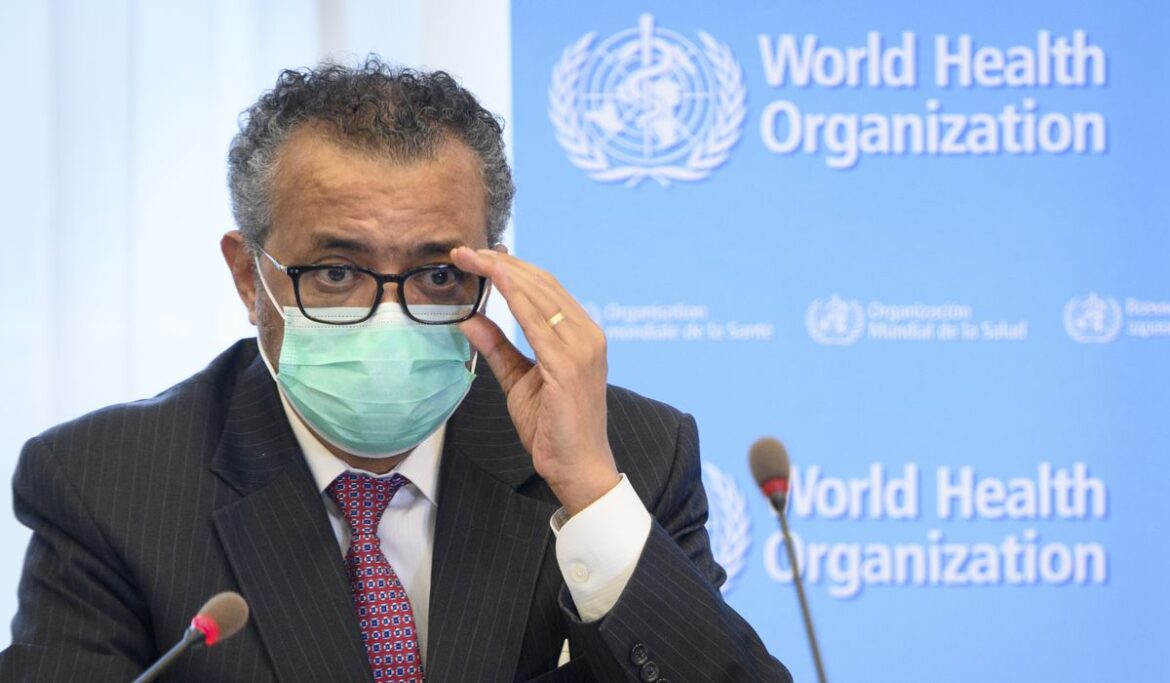
On Friday, four Senate Republicans challenged the World Health Organization’s decision to name the latest novel coronavirus variant “omicron” instead of “xi” — the family name of China’s powerful Communist president, calling it the latest example of the international body’s pandering to Beijing.
In a letter to WHO Director-General Tedros Adhanom Ghebreyesus, the senators disputed the organization’s explanation that the Greek letter “xi” was passed over because it is also a common surname, arguing that the names of other viruses, including the norovirus and Yezo virus, are associated with people and places.
President Xi Jinping’s government is already accused of limiting its cooperation with international researchers on the still-murky origins of the COVID-19 virus in Wuhan in late 2019 and pressuring the WHO to accept its version of events clearing Beijing of all culpability. President Trump pulled the U.S. out of the WHO in 2020, citing undue Chinese influence, although President Biden subsequently reversed that decision.
“For too long, the WHO has bowed to pressure from the Chinese Communist Party,” said the letter obtained by The Washington Times. “This only damages the credibility of health officials across the world and sows fear, confusion, and politics into public health.”
The COVID-19 variants are named after letters of the Greek alphabet in order, but WHO skipped “nu” and “xi” last month for the latest strain in favor of “omicron.” The English spelling of “xi” looks the same on paper as the surname of Mr. Xi, although they are unrelated and pronounced differently.
“‘Nu’ is too easily confounded with ‘new,’ and ‘Xi’ was not used because it is a common last name, and WHO best practices for naming disease suggest avoiding ‘causing offense to any cultural, social, national, regional, professional or ethnic groups,’” said WHO in a Nov. 26 statement.
But GOP Sens. Cynthia Lummis and John Barrasso of Wyoming, Sen. Joni Ernst of Iowa, and Sen. Kevin Cramer of North Dakota expressed their doubts, citing in the letter exceptions to the “rule.”
They cited the tick-borne Yezo virus, which was named recently for the region in Japan in which it was found. “Noro” is a relatively common name in Japan and elsewhere, and yet the norovirus, originally called the Norwalk virus after a 1972 outbreak in Norwalk, Ohio, has not been relabeled.
“In light of these two discrepancies, it seems the standard for naming viruses is arbitrarily based on names that are most beneficial to favored members of the WHO, particularly China,” said the letter. “Indeed, the arbitrary nature of the naming policy only further underlines concerns that the WHO kowtows to the Chinese Communist Party and Chinese General Secretary Xi Jinping that were brought to the surface after the WHO and China’s handling of the COVID-19 pandemic began in Wuhan.”
The senators asked WHO to explain the discrepancies and “how WHO plans to implement a consistent virus naming policy in the future.”
“The lack of a uniform naming policy causes confusion from an organization that is supposed to provide consistency, clarity and nonpolitical guidance to nations around the world,” said the letter.
The Washington Times has reached out to WHO for comment.
‘Xi who must not be named’: WHO leapfrogs #nu, #xi in Greek alphabet to name latest variant #omicron – https://t.co/whJpE5FtHG – @washtimes #COVID19 #omicronvariant #XiJinping #China
— Valerie Richardson (@ValRichardson17) November 27, 2021
The decision to leapfrog “xi” sparked a rash of criticism from Republicans as well as from George Washington University Law School professor Jonathan Turley, who said the “concern is that the WHO is again avoiding any discomfort for the Chinese government.”
The 14th letter of the Greek alphabet is pronounced roughly “gz,” as in most English pronunciations of “exactly.” The letter has no connection to the Chinese name “Xi,” which is a Latin-alphabet representation of a pictograph that is pronounced like the English feminine pronoun “she.”
First identified Nov. 9 in South Africa, the fast-moving omicron variant has since spread to 57 countries. So far no deaths have been reported.
“Certain features of omicron, including its global spread and large number of mutations, suggest it could have a major impact on the course of the pandemic,” said Mr. Tedros at a Wednesday press briefing from its headquarters in Geneva, Switzerland. “Exactly what that impact will be is still difficult to know.”
Rochelle Walensky, Centers for Disease Control and Prevention director, said last week that the focus on omicron should not obscure the fact that “99.9% of cases in this country right now are from the delta variant.”
For more information, visit The Washington Times COVID-19 resource page.
Correction: An earlier version of this story misspelled the name of WHO Director-General Tedros Adhanom Ghebreyesus.
• Victor Morton contributed to this report.





